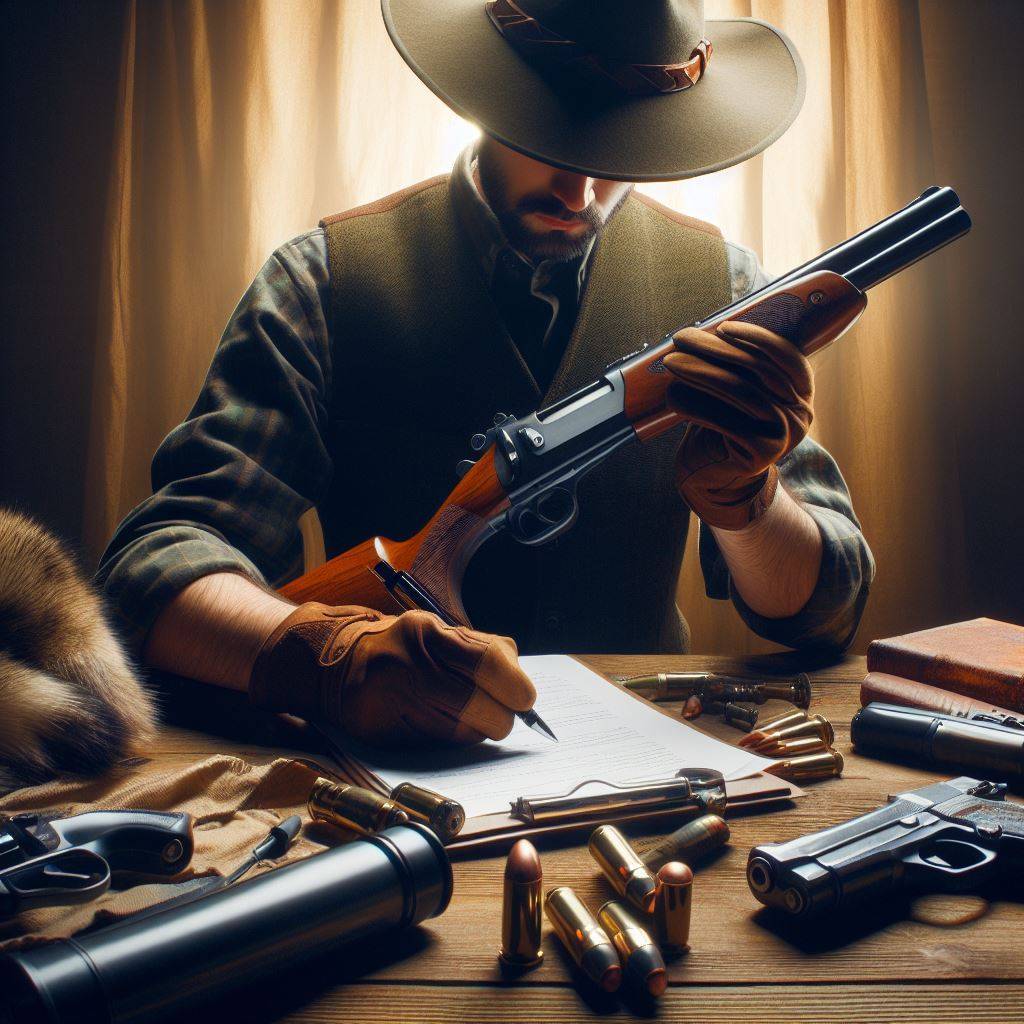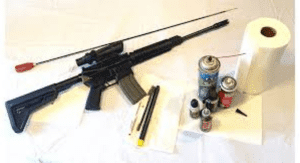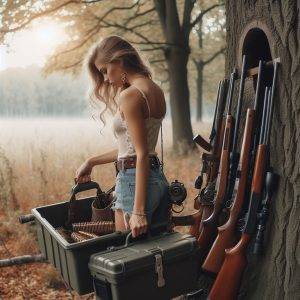Hunting is not just a sport; it’s a primal connection to nature that demands precision, responsibility, and adherence to legal standards. As you embark on your hunting journey, the selection of a firearm becomes a critical decision, intertwining your passion for the outdoors with the necessity of compliance with legal requirements.
Table of Contents
Understanding the Basics of Firearm Selection for Hunting
Before delving into the legal intricacies, let’s touch upon the fundamental aspects of selecting a firearm for hunting. The right choice depends on various factors such as the type of game, terrain, and personal comfort. Shotguns, rifles, and handguns all have their unique advantages, making it essential to align your choice with your specific hunting needs.
Shotgun Selection for Versatility
Shotguns are renowned for their versatility in hunting scenarios. Whether pursuing waterfowl or upland game, shotguns offer a broad range of ammunition choices. However, regulations on shotgun capacity and barrel length must be understood to ensure compliance with hunting laws.
Rifles for Precision and Range
When hunting larger game at a distance, a rifle might be the preferred choice. From bolt-action to semi-automatic, the selection should adhere to legal standards, considering factors like caliber restrictions and magazine capacity limitations.
Handguns for a Different Challenge
Handguns present a different challenge, often requiring closer encounters with the game. Regulations on concealed carry and caliber restrictions are paramount considerations when opting for a handgun as your hunting companion.
Step-by-Step Guide to Complying with Legal Requirements
Now, let’s navigate the legal landscape of selecting a firearm for hunting, step by step.
1. Research Local Laws and Regulations
Before making any decisions, thoroughly research the local hunting laws and regulations in your area. Laws can vary significantly, even between neighboring regions. Online resources like the Department of Fish and Wildlife or your state’s official hunting website are invaluable for up-to-date information.
2. Understand Game-Specific Regulations
Different games come with distinct regulations. Whether you’re hunting deer, waterfowl, or upland birds, be aware of the specific guidelines governing the choice of firearms, ammunition, and hunting seasons. The National Rifle Association (NRA) is a comprehensive resource for game-specific regulations.
Anecdote: I once found myself in a remote area, eager to hunt ducks. Little did I know that the local regulations prohibited certain types of ammunition. It was a lesson learned the hard way.
3. Check Firearm Caliber Restrictions
Caliber restrictions are common in hunting regulations. Some regions limit the caliber you can use for specific game to ensure humane and ethical kills. Research your intended game and its corresponding caliber restrictions to stay within the legal framework.
4. Verify Magazine Capacity Limits
Magazine capacity limits are crucial considerations, especially for semi-automatic rifles. Knowing and adhering to these limits is essential to avoid legal repercussions. Your state’s official hunting guidelines or the Bureau of Alcohol, Tobacco, Firearms and Explosives (ATF) can provide detailed information.
Anecdote: A fellow hunter once faced legal consequences due to unknowingly violating magazine capacity limits. It underscored the importance of being well-versed in the local regulations.
5. Ensure Compliance with Firearm Transportation Laws
Transporting your firearm to and from your hunting destination requires adherence to specific laws. This includes securing the firearm properly, using a designated case, and understanding restrictions on loaded firearms during transportation. The Transportation Security Administration (TSA) provides guidelines for air travel with firearms.
6. Secure the Necessary Permits and Licenses
Acquiring the necessary permits and licenses is a non-negotiable step in ensuring your hunting activities are legal. This includes not only your hunting license but also any additional permits required for specific game or hunting areas. Local wildlife agencies or online platforms like Hunters Ed can assist in obtaining the required documentation.
Anecdote: On a memorable elk hunting trip, my companion forgot to secure the appropriate permit for the area we were in. It led to a costly fine and a lesson about the importance of thorough preparation.
Convincing Case for Your Firearm Selection
In the pursuit of the perfect hunting firearm, you’re not just navigating legal requirements; you’re making an investment in an experience that blends skill, tradition, and respect for wildlife. A carefully selected firearm enhances your connection to nature, ensuring a memorable and ethical hunting journey.
Precision and Accuracy with the Right Firearm:
Investing in a firearm tailored to your hunting needs contributes to precision and accuracy, enhancing the overall experience. Whether you’re stalking elusive game or setting up a blind for waterfowl, the right firearm becomes an extension of your skills.
Safety First:
Adhering to legal requirements isn’t just about compliance; it’s about ensuring the safety of yourself and those around you. The right firearm, chosen within legal parameters, reduces the risk of accidents and promotes responsible hunting practices.
Ethical Hunting Practices:
Respecting legal requirements goes hand in hand with ethical hunting practices. The right firearm, aligned with regulations, ensures humane kills and a commitment to conservation efforts. Being an ethical hunter contributes to the sustainability of wildlife populations.
The Joy of a Legal and Enjoyable Hunting Experience:
By meticulously adhering to legal requirements in your firearm selection, you pave the way for a stress-free and enjoyable hunting experience. The confidence that comes with knowing you are within the legal framework allows you to immerse yourself fully in the beauty of nature.
Conclusion
Selecting a firearm for hunting is a multifaceted decision that requires careful consideration of both personal preferences and legal obligations. By following the step-by-step guide and being aware of local laws and regulations, you not only ensure compliance but also contribute to the preservation of the hunting tradition.
Remember, the right firearm isn’t just a tool; it’s a companion in your journey through the wild. Choose wisely, respect the legal requirements, and let your hunting adventures be a testament to the harmonious coexistence of man and nature.
Frequently Asked Questions (FAQs) related to selecting firearms for hunting, expanding on the topics discussed in the article:
1. Q: What are the main legal considerations when choosing a shotgun for hunting?
A: When selecting a shotgun for hunting, it’s crucial to consider local regulations on barrel length, capacity, and ammunition. Different areas may have specific rules governing the use of shotguns for various game, so staying informed about these legal requirements is essential.
2. Q: Are there specific caliber restrictions for hunting different types of game?
A: Yes, there are often caliber restrictions in place to ensure ethical and humane kills. Research the legal requirements for the game you intend to hunt, as different species may have specific caliber limitations. This information can usually be found in state hunting regulations or through resources like the National Rifle Association (NRA).
3. Q: What permits and licenses do I need to legally hunt with a firearm?
A: Securing the right permits and licenses is crucial. You typically need a general hunting license, and additional permits may be required for specific game or hunting areas. Local wildlife agencies and online platforms like Hunters Ed can guide you through the process of obtaining the necessary documentation.
4. Q: Can I travel with my hunting firearm, and are there specific regulations for transportation?
A: Yes, you can travel with your hunting firearm, but there are strict regulations for transportation. Firearms must be secured in a designated case, and it’s essential to be aware of restrictions on loaded firearms during transportation. The Transportation Security Administration (TSA) provides guidelines for air travel with firearms.
5. Q: How can I ensure I stay within magazine capacity limits when hunting with a semi-automatic rifle?
A: Staying within magazine capacity limits is critical for compliance with hunting laws. Familiarize yourself with local regulations on magazine capacity, which are often outlined in state hunting guidelines or the Bureau of Alcohol, Tobacco, Firearms and Explosives (ATF) resources. It’s also advisable to check the specifications of your specific firearm model to ensure adherence to these limits.



